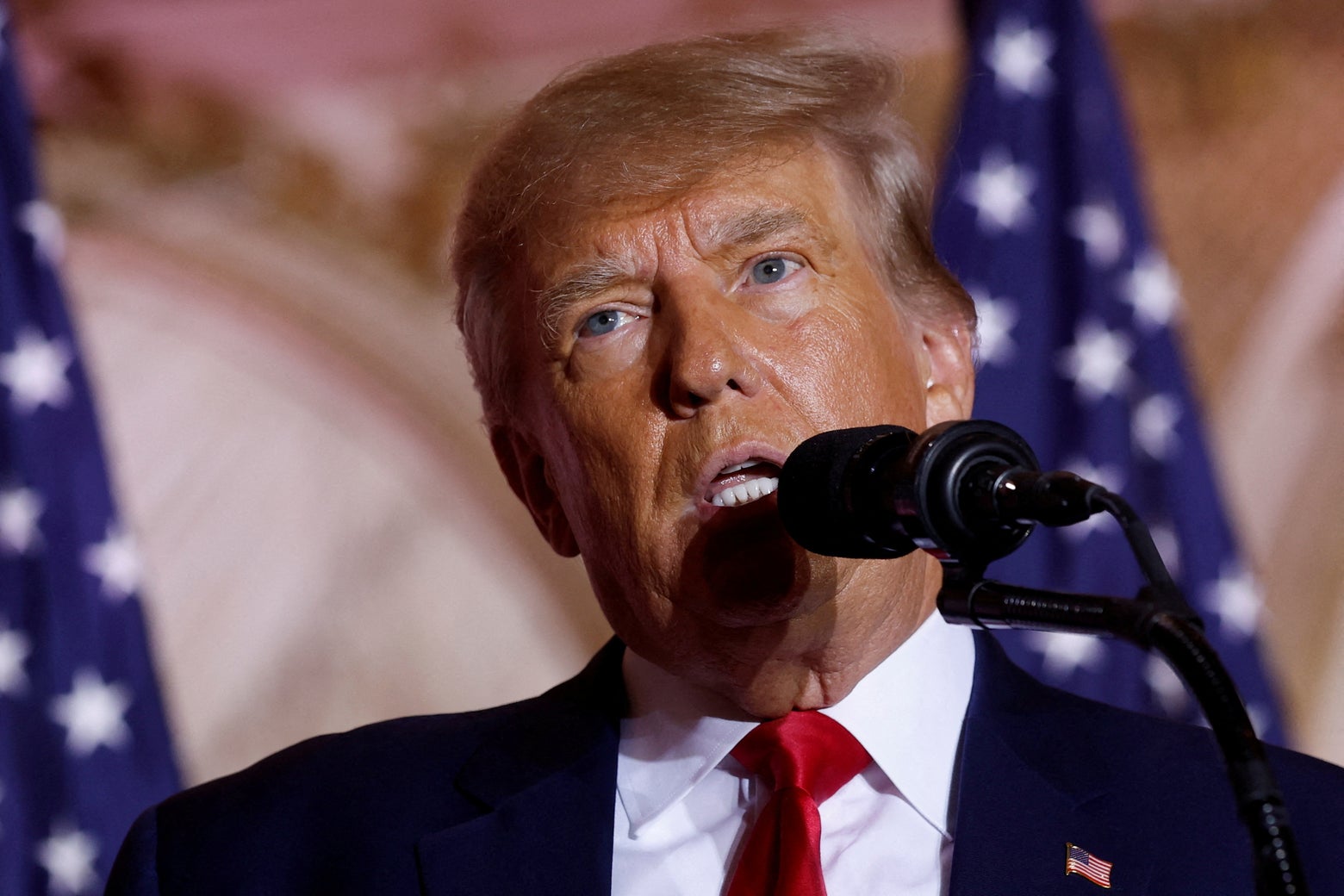
A new Quinnipiac poll out Wednesday takes on a disconcerting idea circulating about the classified documents scandals: that the public cannot distinguish between former President Donald Trump’s year-and-a-half stonewall of government efforts to get back the ones he had shipped to Mar-a-Lago and President Joe Biden’s lawyers’ prompt return upon discovery of those they found in storage at his think tank and garage.
The new poll says that, notwithstanding the White House’s botched lack of transparency around the documents’ discovery, a plurality of Americans—46 percent—think Biden should not be prosecuted, compared to 37 percent who think he should be. It’s the reverse for Trump: A plurality of 50 percent think he should be prosecuted, while 41 percent think he shouldn’t be.
Advertisement
Advertisement
Advertisement
Advertisement
The poll provides an early answer to the cynical frame offered in Republican talking points. On Fox News, House Oversight Committee Chair Jim Comers claimed that his committee is just looking for equal treatment for Trump.
“Why was Mar-a-Lago raided by the FBI?” he asked. “Why did the FBI take surveillance cameras from Mar-a-Lago, but yet they haven’t set foot […] on the premise of […] the Biden residence?”
The underlying and self-serving Republican hope here relies on a belief that Americans are unable to separate wheat from chaff. It says that when the facts shout, “It’s the obstruction,” we’re too stupid to understand.
Unfortunately, even some nonpartisan commentary suggests that citizens won’t be able to grasp the differences in Trump’s and Biden’s situations.
Advertisement
Advertisement
Thomas Jefferson had more faith in the people. In 1816, he wrote in a letter to John Adams that the public is the “safe depository of the ultimate powers of the society. […] And if we think them not enlightened enough to exercise their control with a wholesome discretion, the remedy is […] to […] inform their discretion.”
It’s not naïve to still think this way. Independent-minded Americans exposed to truth understand it and are able to pierce false equivalencies: claims that two things sharing similar qualities deserve equal weight when they don’t.
Advertisement
There are monumental differences between the known facts of the Trump and Biden classified document situations, especially for purposes of the criminal law. Mistakes handling and relocating classified documents are common enough to have a name: “classified spillage.” Without willful intent, there is no basis for prosecution. With it, there is.
Advertisement
As to the Mar-a-Lago documents, Trump virtually admitted intentionality, asserting through lawyers that they were his personal property. He spent 18 months blocking the government’s attempts to get them back, including by a grand jury subpoena. It took a court-approved FBI search and seizure to reveal the falsity of his lawyer’s denial that any more documents were there and to recover thousands of government documents at the country club.
Advertisement
Advertisement
It’s not only Biden’s lawyers’ immediate return of the documents that makes his case different. The president told the public he was surprised to learn that they were there and was reportedly angry at former aides who packed up his vice presidential papers years ago.
Advertisement
Advertisement
To be sure, Republicans are already attacking his denial, asserting that he’s lying. Politicians shorting the truth is hardly unknown. But we are yet to see evidence that Biden had anything to do with the classified documents in storage, whereas the former president has claimed he owned his.
Advertisement
Advertisement
So to date, we have intentionality versus inadvertence, obstruction versus cooperation—plain differences in law and ethics. In the months ahead, as special counsel investigations play out, explanations of the difference will frequently recur. They will sink in.
Voters have proved before that nuance is not beyond them. In battleground Nevada, they elected Republican Gov. Joe Lombardo this past November. He made occasional reference to possible 2020 “election irregularities” but avoided election denialism. Meanwhile, in the same election, Nevadans defeated denialist secretary of state candidate Jim Marchant.
Advertisement
Donald Trump has alerted us to the dangers to democracy posed by assaults on truth; his Big Lie nearly brought down the whole house on Jan. 6. He taught the media to belatedly call intentional falsehoods lies. At the ballot box and in polls like Quinnipiac’s, people around the country have already shown that they see those lies for what they are.
Most children understand the difference between an admission and a lie; even kids grasp the difference between doing something by accident and doing something on purpose. Grown voters who live in the factual world won’t have trouble with the same distinctions. When exposed to plainspoken reporting, they are able to discern differences, including between obstructive and cooperative behavior.
You may be able to fool some of the people all of the time. But provable events and their honest narration over many months make it hard to fool a lot of swing voters on Election Day.
